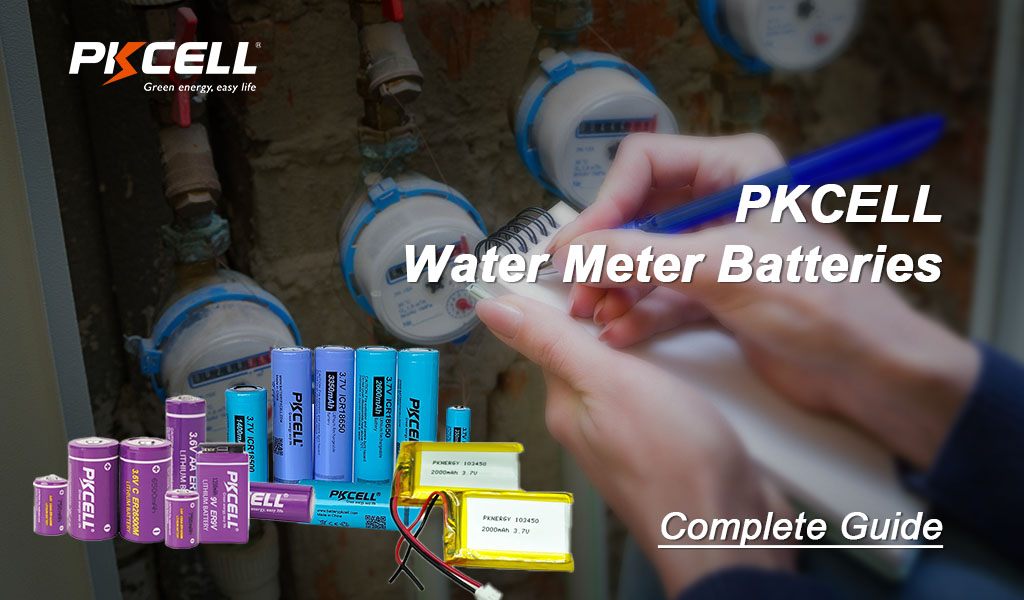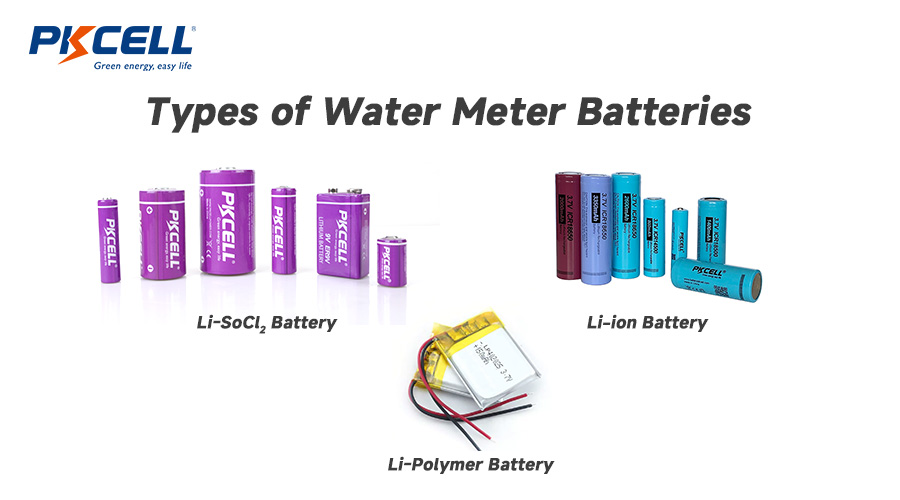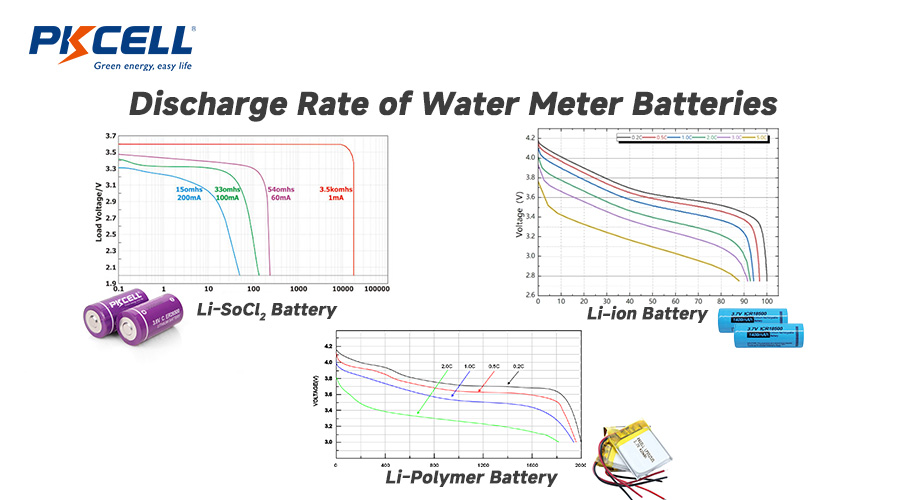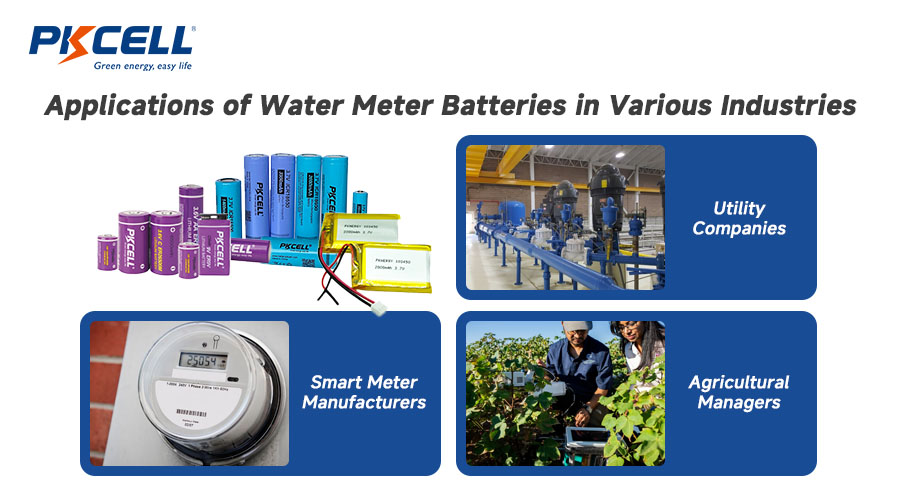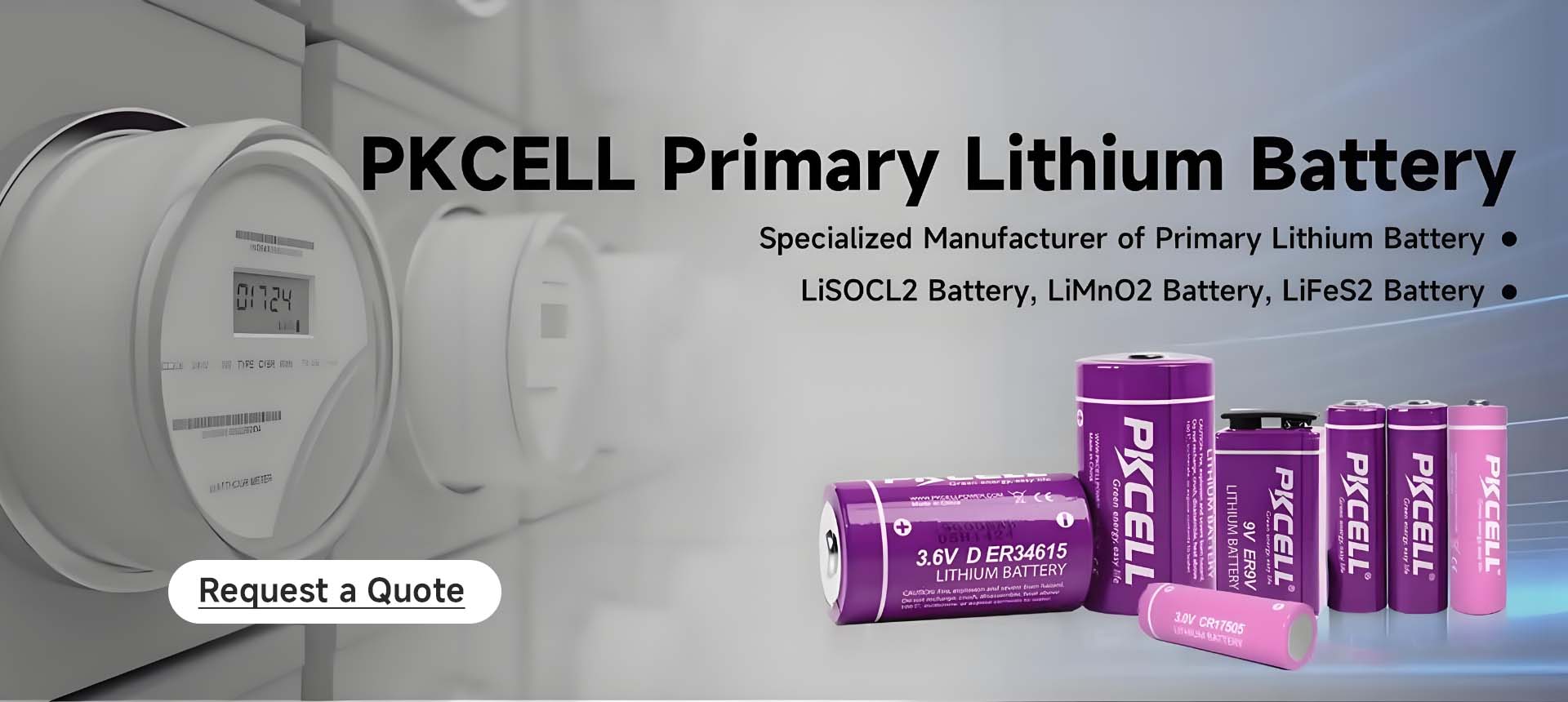Key Highlights
- Water meter batteries help you get accurate readings and let people manage water use the right way.
- Lithium batteries, such as Li-SOCl2, Li-Po, and Li-Ion, are known for their high energy density. These batteries last for a long time and are a good choice for water meter tasks.
- Choosing the ideal battery for your water meter depends on its longevity, discharge capabilities, pulse current management, and compatibility with your water meter.
- Advanced water meter batteries are now used in things like farming and big city water systems. They are a key part in making smart water meters work well.
Introduction: What Is a Water Meter Battery?
A water meter battery gives power to the inside of the water meter. This helps the water meter work well. You get accurate readings of the water you use. They help the water meter work for billing and also for good water management.
Types of Water Meter Batteries
Lithium Thionyl Chloride (Li-SOCl2) Batteries
Lithium thionyl chloride (Li-SOCl2) is a good choice for water meter batteries. It has high energy density and a long lifespan. The battery works well in both hot and cold weather. This makes Li-SOCl2 batteries steady, safe, and good to use in many places. These batteries have a steady discharge. This means smart meters always have stable performance. The tough build of Li-SOCl2 batteries means you do not have to do much for upkeep.
Lithium Polymer (Li-Po) Batteries
Lithium polymer (Li-Po) batteries have high energy density. This means they can hold a lot of power but do not weigh much. These lithium batteries are small and fit well in places where there is not a lot of space. Their size makes it possible to get accurate readings, even in tight areas. Because they have a soft structure, you can make them in many shapes.
Lithium-ion (Li-ion) Battery
Lithium-ion batteries are used in many devices. They have good energy density, and they last for a long time. These lithium batteries give steady power to smart meters in water meters. You can recharge these lithium batteries. This makes them a good choice for places where it is not easy to do maintenance.
| Battery Type | Energy Density (Wh/kg) | Cycle Life | Rechargeable | Maintenance Needs |
|---|---|---|---|---|
| LiSOCl2 | ~500 | / | No | Low |
| Li-ion | ~150-250 | 500-2000 | Yes | Moderate |
| LiPo | ~100-250 | 300-500 | Yes | High |
How to Choose the Right Battery for Your Water Meter
- Battery Life: Battery life is very important when you choose water meter batteries. Some high-energy lithium options, like Lithium Thionyl Chloride and Li-Ion, can help the battery lifespan last longer and make your water meter work better. What's more, Li-SOCl2 batteries don't lose much charge when you are not using them, so they can work for many years in most places.
- Temperature Range: Temperature resilience is important for water meter batteries. A water meter needs to give accurate readings all the time, despite different weather. Lithium batteries, like the Li-SOCl2, are good at handling different weather situations. A lithium battery can do well even in very hot or cold weather. The operational temperature for these water meter batteries can vary from -40°C to 80°C.
- Discharge Rate: The discharge rate of a battery is a key fact to understand. You need to know this when checking if the battery will provide enough power for a water meter. A lot of people use lithium batteries for this, like Li-SOCl2 and Li-Ion. The reason is that these lithium batteries keep a steady discharge. This helps the water meter keep working the right way, even if you use it a lot.
- Size & Compatibility: Battery size and how well it fits matter for the water meter to work right. You can use Li-Po or small Li-Ion batteries for water meters with limited space. They both have high energy density. Li-SOCl2 batteries are bigger, and they last many years. Because of this, they are good to use in big water meter devices or the ones you put outside.
Quote For PKCell LiSoCl2 & Li-po & Li-ion Batteries
Applications of Water Meter Batteries in Various Industries
Utility Companies & Municipal Water Departments
Utility companies and city water teams use lithium thionyl chloride (Li-SOCl2) batteries in their water meters. They pick these lithium batteries because they have high energy density and a long lifespan. This helps provide accurate readings for a long time. Their steady discharge makes sure that the water flow is always monitored. Using lithium batteries helps people and companies have better control over resources. This can also make costs go down.
Smart Meter Manufacturers
Smart meter makers are now using new battery technology to help get more accurate readings. Most smart meters use lithium batteries. These can be lithium thionyl chloride (Li-SOCl2) or lithium-ion (Li-ion) batteries. This is important for smart meters, especially for meters in places that are hard to reach. When a smart meter is in a far-off place, it is not easy to go out there and work on it. Good energy density in lithium batteries is very helpful in these cases. Also, the long life and steady discharge rate of lithium batteries help smart meters work well for a long time.
Agricultural and Large Facility Managers
Farm and large site managers now use lithium thionyl chloride (Li-SOCl2) and lithium-ion (Li-ion) batteries in water meters. These lithium batteries have high energy density. With this, smart meters can give accurate readings for a long time. When you get the right numbers, it gets easier to take care of water and other things. When people say smart meters are changing how we track water, they are also saying that lithium batteries can save money and help with green aims for big projects.
Maximising Water Meter Battery Life
If you want your battery to last, here are some tips:
- Pick options like Li-SOCl2 or Li-Ion based on what you need and what you will use it for.
- Check your battery from time to time. Look for any early signs of wear or too much discharge. This will help you make sure the battery keeps working well for a long time.
- You should keep the battery away from water, heat, and cold. This will help the battery last a long time.
- When you use meters with batteries that discharge slowly, they last longer. They can also work well in hard places.
Why Choose PKCELL for Your Water Meter Battery Needs?
PKCELL is a reliable choice for LiSoCl2 water meter batteries, providing long-lasting and stable power. With over 20 years of experience, we offer batteries designed to meet the demands of water meters, ensuring accurate readings and a long service life. Our batteries are built to perform in various conditions, offering reliability and efficiency. With strict quality control and international certifications like ISO9001, CE, and RoHS, you can trust PKCELL for high-quality, cost-effective water meter batteries that keep your systems running smoothly.
Conclusion
To sum up, it is good to know about the different kinds of water meter batteries and where you should use them. This helps you get better and steadier results when you work in this field. You need to think about the lifespan of the battery, the temperature it can handle, and if it matches your water meter. These things help you choose the best one. If you want help picking a water meter battery or if you have any questions, feel free to reach out to us.
Frequently Asked Questions
How long does a typical water meter battery last?
A water meter battery can last from 10 to 20 years. The time you get will depend on the type you choose and where you use it. Some lithium batteries, such as Li-SOCl2, can last as long as 40 years if you use them the right way. This means you may not have to change them for a very long time. If you want your water meter to have a good lifespan, lithium batteries are a good choice.
What are the signs that a water meter battery needs replacement?
When you see the readings are not as good as they were before, it could mean the battery needs to be changed. If the battery stops working often or it takes more time to send out the data, this can also mean that the battery is running out. Lithium batteries can lose power the more you use them. After a lot of uses, their power will not be as strong as before. If you notice these things, it could be time to get a new lithium battery.
What happens if a water meter battery fails?
A dead battery in the water meter will stop it from giving accurate readings. When this happens, it gets hard for you to know how much water you use. You may also get the wrong bill because of this. If you change the battery right away, the water meter will work well again. This will get things back to normal. It also helps you stay away from bigger problems that may come up later.
How often should you replace the battery in a water meter?
A water meter battery will often need to be changed every 5 to 10 years. The time can be different depending on the model and how much it is used. To make sure your water meter stays in good shape and gives you accurate readings, you should check it often. Always read and follow the manufacturer's rules for this. This will help you take care of your water meter battery.
Post time: Jun-30-2025


